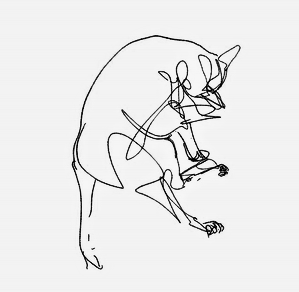
कसं काय!
Henri Bergson describes humor as a critique on the mechanistic. We joke on the attributes that we find are mechanical, rigid, repetitive, and those whcih make us perish during the evolution. In an essay (vide, Emily Herring) he points out that play on words makes us laugh because it shows the rigidity of the language. We expect the literal and get the figurative or something from other dimension (non-literal). Puns, some poor jokes are manifestation of the comment on the mechanical. Quirky T-shirt brands also use this wordplay for the viewers /1 1/ Another line of thought: Such t-shirts are designed to engage the viewers. They increase the amount of entertainment around the viewer. It might be a cause of distraction as well. The question: Does entertainment stop becoming entertainment? If yes, when? Does the hedonic treadmill ever stop? If I am bombarded with entertainment all day, what will happen to my entertainment? . A viewer humors herself once she understands the incongrous juxtaposition of different contexts used. The humor only lies in the ability to de-juxtapose, as it relieves one from the rigidity of the language, and one feels evolved and belonged to the community. Management folks would say, quirky t-shirts relaxe the people viewing it by making them chuckle, and they are right as well; they sell more.
For our student chapter of the ACM SIG, called IITB ACM SIGCHI Mumbai Student Chapter, I made a design for the back of a hoodie.

Colophon:
Software: Figma
Typeface: Baloo 2
Update:
InertiaKart was kind enough to ship hoodies to 22 different locations in India. Some happy faces
We #represent! Read as 'Kasa kaay' it means 'what's up!'
— IIT Bombay ACM SIGCHI Student Chapter (@SIGCHI_IITB) September 14, 2020
We bring forth #design and #HCI thoughts with <3 from India.Tx @ACM_SIGCHI, @sigchi, @sigchi_chapters n @eunicesari for supporting us. Tx to @anirudhaidc for mentoring us and @idc_iitb for being an awesome place that it is pic.twitter.com/5L5GtprwaX